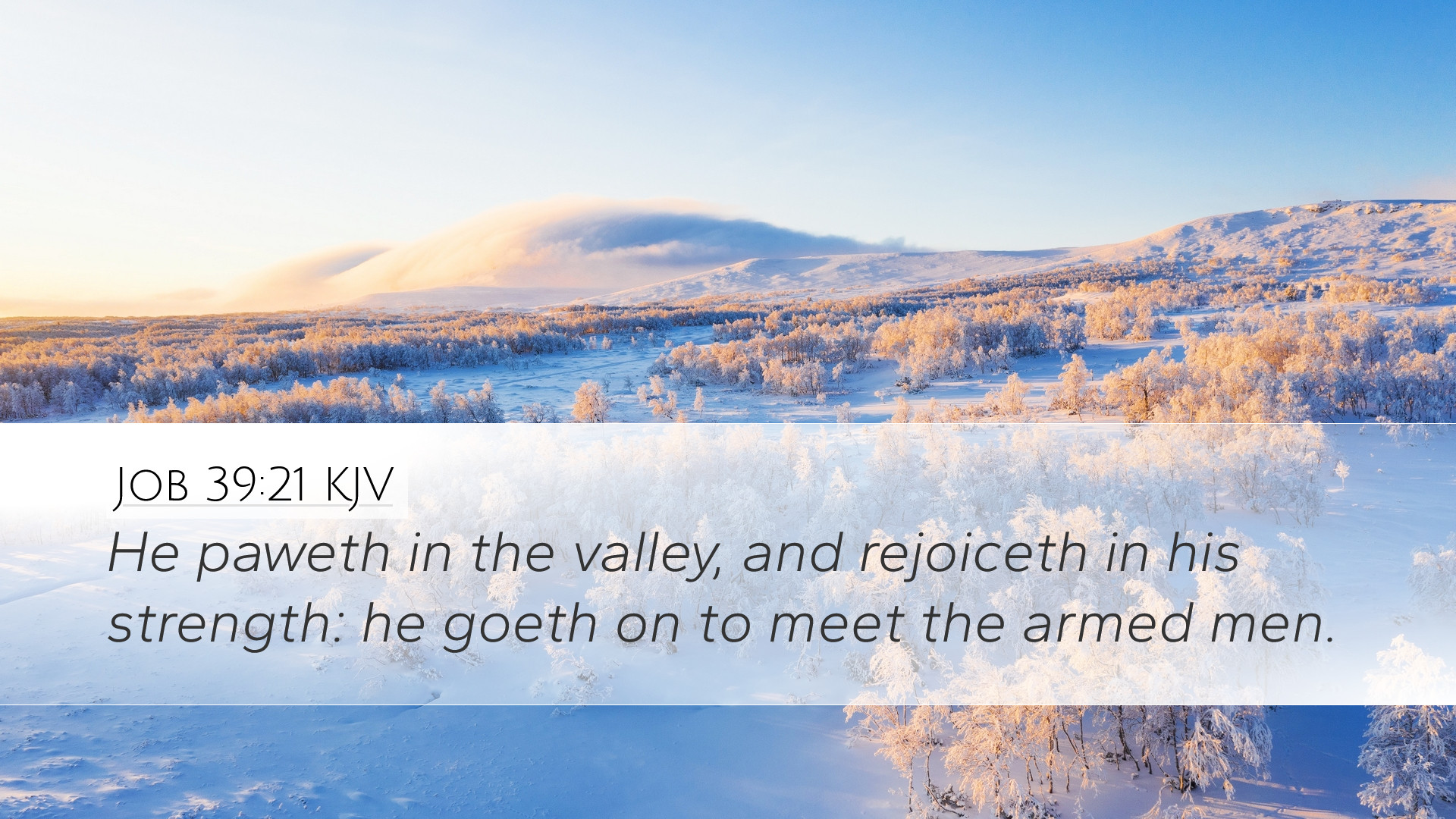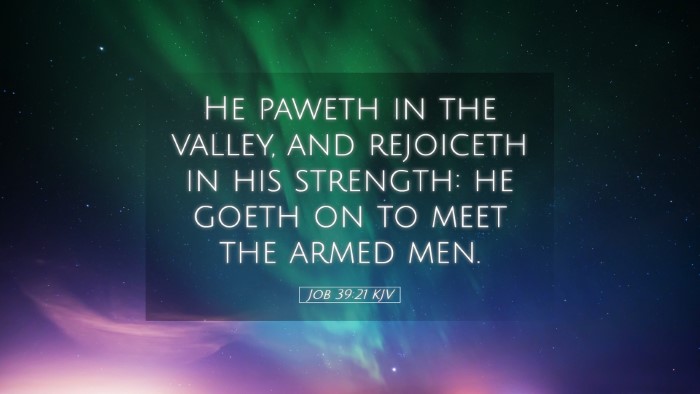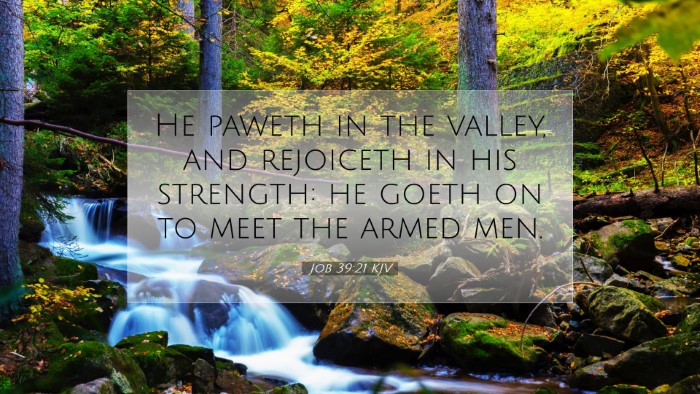Old Testament
Genesis Exodus Leviticus Numbers Deuteronomy Joshua Judges Ruth 1 Samuel 2 Samuel 1 Kings 2 Kings 1 Chronicles 2 Chronicles Ezra Nehemiah Esther Job Psalms Proverbs Ecclesiastes Song of Solomon Isaiah Jeremiah Lamentations Ezekiel Daniel Hosea Joel Amos Obadiah Jonah Micah Nahum Habakkuk Zephaniah Haggai Zechariah MalachiJob 39:21
Job 39:21 KJV
He paweth in the valley, and rejoiceth in his strength: he goeth on to meet the armed men.
Job 39:21 Bible Commentary
Commentary on Job 39:21
The verse Job 39:21 states: "He paws in the valley, and rejoices in his strength: he goeth on to meet the armed men." This scripture, nestled within the profound poetic dialogues of the Book of Job, speaks to the intricate imagery that highlights the nature of the wild horse. The various public domain commentaries provide deep insights into the metaphors represented here, which can be pertinent for pastors, students, and theologians alike.
Understanding Job's Context
Before delving into the specific commentary on this verse, it is important to understand the larger context of the Book of Job. Throughout the text, God speaks to Job from the whirlwind, utilizing creation itself as a way to illustrate His majesty and the inherent wisdom of His design. In Job 39, God shifts His focus to various creatures, highlighting their attributes and behaviors as he imparts lessons of divine sovereignty and human limitation.
The Symbolism of the Horse
In Job 39:21, the horse serves as a potent symbol of strength and unrestrained power:
- Matthew Henry: Henry emphasizes the wild nature of the horse, which cannot be tamed and expresses its vitality through its exuberance and strength. The horse is depicted as fearless and bold, embodying the spirit of bravery in the face of challenges.
- Albert Barnes: Barnes notes that the horse's pawing in the valley symbolizes a readiness to engage in battle. He argues that the horse’s movements reflect its natural instincts and passion for freedom, suggesting a deeper commentary on human nature's longing for assertiveness and courage in times of trial.
- Adam Clarke: Clarke highlights the unique qualities of the horse, particularly its joy and vigor. He remarks that the horse's strength is not merely for show but is a gift, representing God's creation's raw might, which should instill awe and reverence in humanity.
Literary and Theological Insights
The imagery within Job 39:21 serves to articulate broader themes pertinent to human experience and divine oversight:
- Bravery in Adversity: The horse's readiness to confront armed men can be seen as an inspirational metaphor for believers to exhibit courage in the face of life's trials. As Job grapples with his suffering, this verse encourages an attitude of boldness.
- Divine Sovereignty: Job 39:21, within its context, reflects God's control over all creation, including powerful creatures like the horse. Pastors and theologians might interpret this as a reminder that God is sovereign even over the forces of nature and man, emphasizing that His divine purpose prevails.
- Human Limitations: The contrasting strength of the horse against the backdrop of human vulnerability is a foundational theme in Job's narrative. It may remind readers of their limitations, encouraging humility in understanding their place within God's grand design.
Application for Today’s Believers
Job 39:21 invites believers to reflect on their own lives as they parallel the wild horse's characteristics with their spiritual journeys:
- Embracing Strength: Just as the horse exhibits its strength and vigor, believers are called to embrace the power they have in Christ—drawing from His strength in places of weakness.
- Responding to Challenges: The horse's readiness to meet the armed men signifies that believers should prepare themselves for the battles in life—spiritually, emotionally, and socially. This reflects a proactive approach to faith.
- Finding Joy in Creation: Clarke's observation of the horse's joy points to the importance of appreciating God's creation. Believers are encouraged to find joy in their lives, recognizing God's hand in every aspect of their existence.
Conclusion
In summary, Job 39:21 serves as a multifaceted verse rich with meaning and relevance. Matthew Henry, Albert Barnes, and Adam Clarke provide substantial commentary, drawing forth themes of strength, courage, and divine sovereignty that transcend the text's historical context. For pastors and scholars, this verse acts as a poignant reminder of God's majestic creativity and the call to embody courage in the face of adversity, making it a source of inspiration and encouragement for believers today.


